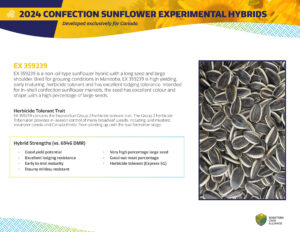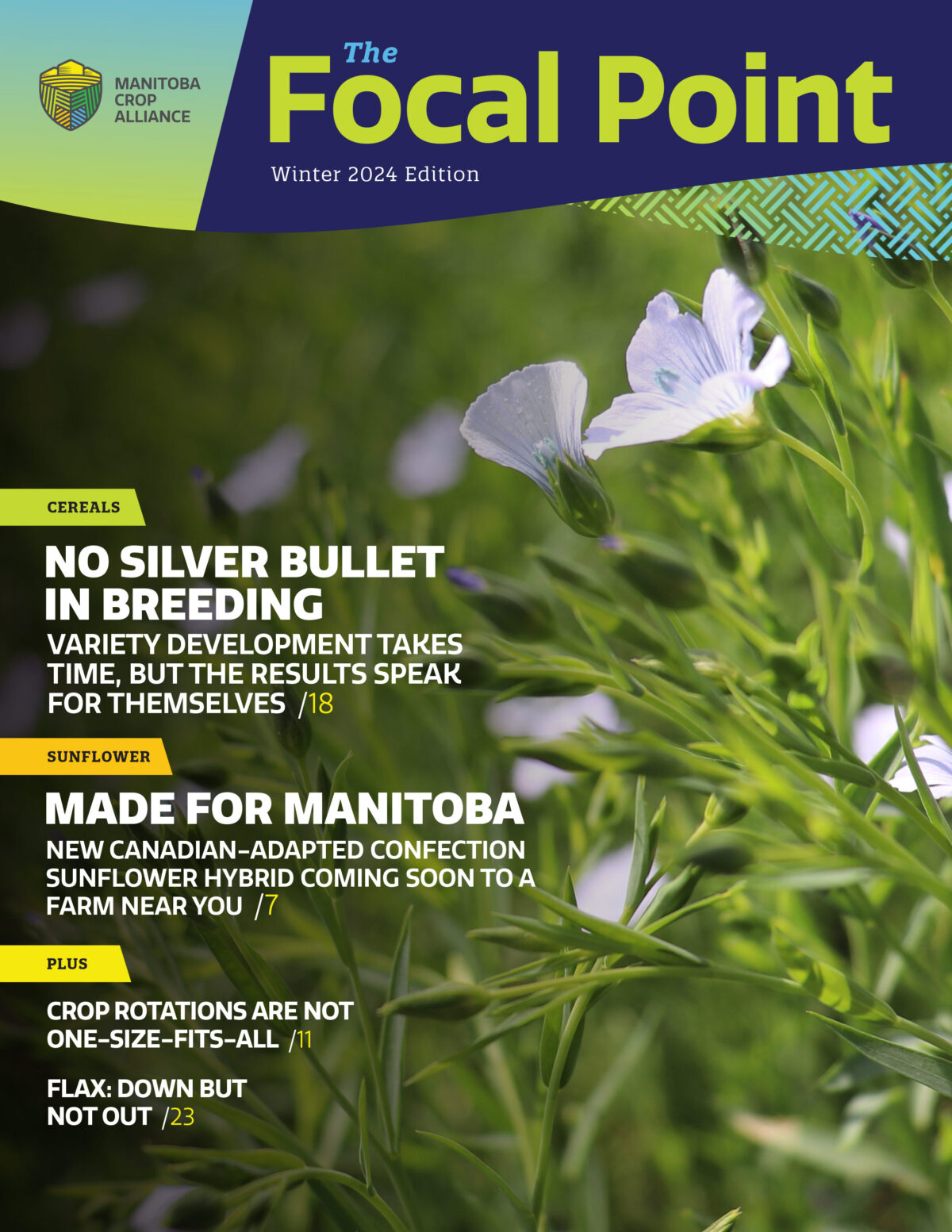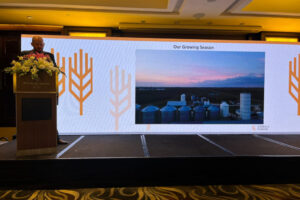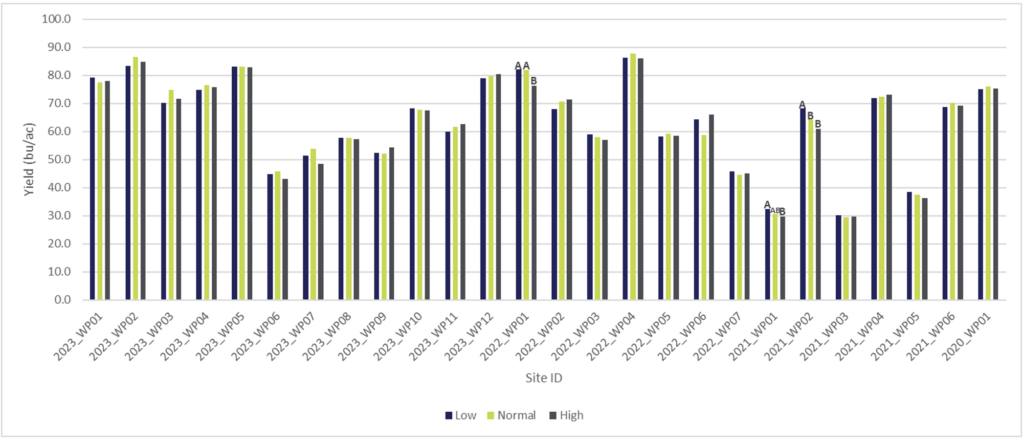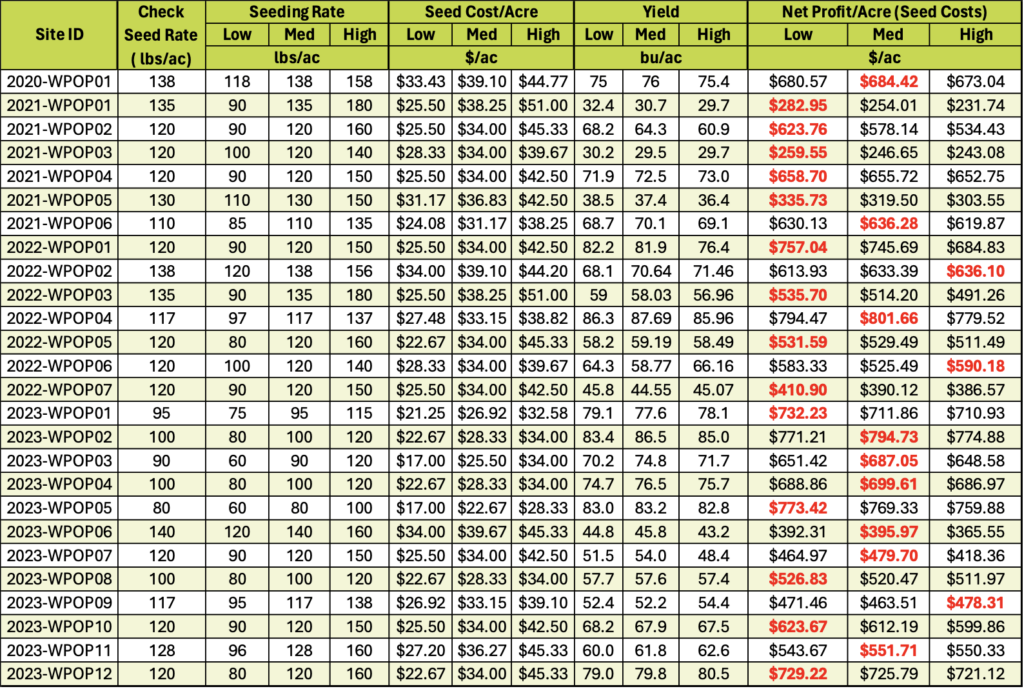Aida Kebede, a research scientist at Agriculture and Agri-Food Canada’s (AAFC) Ottawa Research and Development Centre (RDC), is focused on corn germplasm development and genetic studies. She was raised in Ethiopia and received M.Sc. and B.Sc. degrees in plant breeding and plant sciences from Haramaya University, before completing her PhD in plant breeding from the University of Hohenheim in Stuttgart, Germany. She now lives in the Ottawa-Gatineau metropolitan area.
Where did you work before AAFC?
Prior to coming to Canada, I worked at the International Maize and Wheat Improvement Center, also known by its Spanish acronym, CIMMYT. As a PhD student, I spent five years conducting research on improving breeding methods for corn drought tolerance and supporting the establishment of a double-haploid breeding program. I was part of the team that brought the in vivo double haploid line production technology from the University of Hohenheim, Germany, to CIMMYT, Mexico.
After that I worked as a post-doctoral fellow with Lana Reid (former corn breeder) and Linda Harris in the corn breeding program of the Ottawa RDC from 2013 to 2016 and afterwards as a PRP-research scientist at the Morden RDC under the supervision of Curt McCartney from 2017 to 2019. At Morden, I worked on finding molecular markers for disease resistance breeding to oat rusts.
What got you interested in this area of work?
A renowned plant geneticist from Ethiopia, Melaku Worede, who is also a good friend of my father, inspired me to study plant breeding for my postgraduate studies. Since I did my PhD thesis research in corn breeding, I could say corn grew on me.
Tell us a bit about what you’re working on at AAFC’s Ottawa RDC.
My day-to-day activities for a given growing season include designing field trial experiments and nurseries, overseeing planting, recording germination and seedling vigour, followed by observing plant growth and eliminating lines that do not fit the set criteria. In the summer, pollination is a collective effort for my technicians, summer students and myself. We work seven days a week until mid-August.
Then in September we go through our nurseries for a second round of selection and eliminate lines with undesirable traits such as tillering or overall plant stand. Next, we (my technicians and myself) harvest nurseries, isolation blocks and yield trials, and then harvest seed gets processed and the data analyzed in order to do the selection before the new season starts in January.
Around seven years ago, Lana Reid, plant physiologist, and Malcolm Morrison, plant phenomisist, at the Ottawa RDC started making crosses and tested a new method of cold tolerance screening and selection. In this method, crosses and progenies were germinated in cold temperatures (13°C day / 7°C night) in a growth chamber and those which germinate within 21 days were transplanted to the field and selected based on additional attributes to pass to the next generation. This method of selection granted a five-day earlier germination advantage over the commercial check hybrids when tested here in Ottawa. I took over the advancement of the breeding population for cold tolerance in 2021 and continued until the end of the Canadian Agriculture Partnership (CAP) project in 2023.
There is a new project starting this year under the Sustainable CAP stream where the cold-tolerant breeding populations will be tested for cold tolerance under field conditions here in Ontario and Manitoba. This will be in collaboration with Yvonne Lawley from the University of Manitoba.
My role as a breeder is to continue advancing the germplasm in the breeding pipeline with selection for best yield performance and early spring cold tolerance. Promising inbred lines will be released in the coming three to four years, and breeding companies could make use of those inbred lines for making commercial hybrids.
What is the best part about your job?
The best part about my job would be that our research outputs have direct practical application. The inbred lines we develop are taken up by private companies that will turn them into hybrid varieties for use by corn growers.
In addition, the multi-disciplinary nature of our work gives us the opportunity to interact with different national and international organizations, universities and industry groups who dedicate their efforts to the sustainability and productivity of the corn industry in Canada.
What can you say about the value of farmers providing funding and support to your organization?
I would say it is the golden key for maintaining continuity of our research work. Germplasm development is not a short-term undertaking. You need at least nine or more years to develop a variety that a corn grower can use in their field. The support we get from farmers ensures that we succeed.
How does that farmer funding and support directly benefit farmers?
It gives farmers the arena for their ideas to become reality and their voices to be heard, plus the opportunity to guide future research directions. At the end of the day, they are the direct users of the technology and germplasm we develop.
How do you spend your time outside of work?
I love gardening. I have a community garden lot near my home where I grow vegetables and herbs. I like playing basketball and badminton as well.
How do you celebrate agriculture?
Attending the Corn and Apple Festival in Morden, MB, used to be one of my favorite events when I was living there. I really enjoyed the farm machinery parades, buying stuff from the local vendors with homemade products and the free, cooked sweet corn they serve to everyone. I haven’t found a similar event in Ontario yet, but I have been to a maze inside a corn field, which was a lot of fun.
Who or what inspires you?
People with positive thinking attitudes. I am inspired by those who focus on the solutions rather than the problems.
What is your favourite food or meal to cook?
Sweet corn. It only takes five minutes to cook in boiling water, and tastes delicious.


